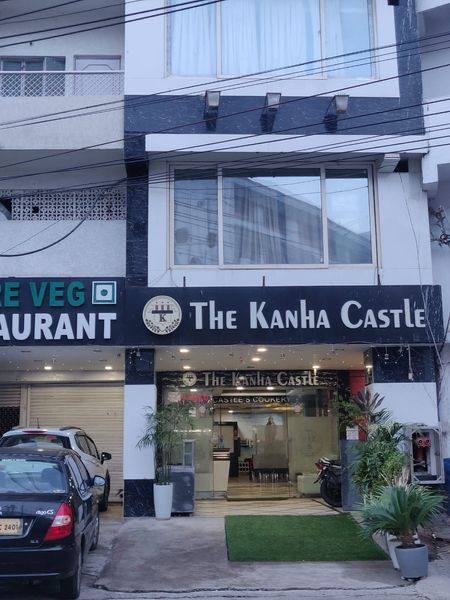Why Personalized Delivery Services Are Reshaping Customer Expectations
 Hafsa Ashraf
17 Jul, 2025
12 mins read
53
Hafsa Ashraf
17 Jul, 2025
12 mins read
53

The delivery industry has transformed dramatically over the past decade. What started as simple food delivery has evolved into a sophisticated ecosystem where customers expect tailored experiences, real-time tracking, and services that adapt to their unique preferences. Personalized delivery services have become the new standard, fundamentally changing how businesses connect with their customers.
This shift isn't just about convenience—it's about creating meaningful relationships through technology. Customers no longer want generic delivery experiences. They want services that understand their dietary restrictions, remember their favourite orders, and anticipate their needs. For businesses, this presents both an opportunity and a challenge: how do you deliver personalization at scale without compromising efficiency?
The rise of personalized delivery services represents a broader trend towards customer-centric business models. Companies that can successfully implement these services gain significant competitive advantages, from increased customer loyalty to higher order values. However, building such systems from scratch requires substantial technical expertise and resources.
The Evolution of Delivery Services
Traditional delivery services operated on a one-size-fits-all model. Customers placed orders, and businesses fulfilled them with minimal customization. This approach worked when competition was limited and customer expectations were lower. However, as the market matured and technology advanced, businesses began recognizing the value of personalization.
The transformation began with simple features like order history and favourite items. Gradually, services incorporated more sophisticated elements such as dietary preference tracking, personalized recommendations, and adaptive user interfaces. These innovations didn't just improve user experience—they fundamentally changed customer expectations across the entire industry.
Modern personalized delivery services leverage artificial intelligence and machine learning to create truly individualized experiences. They analyze customer behavior patterns, predict preferences, and optimize delivery routes based on personal schedules. This level of sophistication has become the baseline for competitive service delivery.
Key Features of Personalized Delivery Services
Smart Recommendation Systems
Advanced recommendation engines analyze customer purchase history, browsing behavior, and demographic data to suggest relevant products. These systems continuously learn from user interactions, becoming more accurate over time. The result is a curated experience that feels intuitive and helpful rather than intrusive.
Effective recommendation systems consider multiple factors including seasonal preferences, time-based patterns, and contextual information. For instance, a customer who regularly orders coffee at 8 AM might receive breakfast recommendations during their typical ordering window.
Dynamic Pricing and Personalized Offers
Personalized delivery platforms can adjust pricing and promotions based on individual customer profiles. Loyal customers might receive exclusive discounts, while new users could be targeted with welcome offers. This approach maximizes both customer satisfaction and business profitability.
Dynamic pricing algorithms consider factors like order frequency, customer lifetime value, and market demand. This ensures that promotional strategies align with business objectives while maintaining customer satisfaction.
Customizable User Interfaces
Modern delivery apps adapt their interface based on user preferences and behavior patterns. Frequent customers might see streamlined reorder options, while exploratory users receive expanded browsing features. This flexibility ensures that the app experience matches individual usage patterns.
Interface customization extends beyond visual elements to include functional preferences. Users can set default delivery addresses, payment methods, and notification preferences, creating a seamless experience that reduces friction with each interaction.
Predictive Delivery Scheduling
Advanced systems can predict optimal delivery times based on historical data and current circumstances. This includes considering traffic patterns, weather conditions, and individual customer schedules to minimize delivery times and improve satisfaction.
Predictive scheduling also enables proactive communication with customers about potential delays or alternative delivery options. This transparency builds trust and allows customers to make informed decisions about their orders.
Benefits for Businesses
Enhanced Customer Loyalty
Personalized experiences create emotional connections between customers and brands. When customers feel understood and valued, they're more likely to remain loyal and make repeat purchases. This loyalty translates directly into improved customer lifetime value and reduced acquisition costs.
Research consistently shows that personalized experiences increase customer satisfaction scores and reduce churn rates. Businesses that invest in personalization often see significant improvements in their customer retention metrics.
Increased Order Values
Personalized recommendations and targeted promotions typically lead to higher average order values. When customers receive relevant suggestions that match their preferences, they're more likely to add additional items to their orders.
Effective personalization can increase order values by 15-25% compared to generic approaches. This improvement comes from better product matching and strategic cross-selling opportunities.
Operational Efficiency
Personalized delivery services often include features that improve operational efficiency. Predictive ordering can help businesses manage inventory more effectively, while optimized routing reduces delivery costs and times.
Data-driven insights from personalized systems help businesses identify trends, optimize their service offerings, and make informed decisions about expansion or menu changes.
Competitive Differentiation
Businesses that offer superior personalized experiences gain significant competitive advantages. Customers are willing to pay premium prices for services that consistently meet their individual needs and preferences.
This differentiation becomes particularly important in saturated markets where price competition alone isn't sustainable. Personalized service quality becomes a key differentiator that's difficult for competitors to replicate.
Implementation Challenges
Technical Complexity
Building personalized delivery systems requires sophisticated technology infrastructure. Businesses need robust databases, machine learning capabilities, and real-time processing systems. This technical complexity can be overwhelming for companies without extensive development resources.
The integration of multiple systems—inventory management, customer relationship management, payment processing, and delivery logistics—requires careful planning and execution. Technical failures in any component can significantly impact the entire service.
Data Privacy and Security
Personalized services require extensive customer data collection and analysis. This creates significant privacy and security responsibilities. Businesses must ensure compliance with regulations like GDPR while maintaining customer trust.
Data security breaches can be particularly damaging for personalized services because they involve detailed customer information. Robust security measures and transparent privacy policies are essential for maintaining customer confidence.
Scalability Concerns
Personalization systems must perform effectively as customer bases grow. What works for thousands of customers might not work for millions. Businesses need scalable solutions that maintain performance and personalization quality as they expand.
Scaling personalized services often requires significant infrastructure investments and ongoing optimization. Companies must balance personalization sophistication with system performance and cost considerations.
The Role of Ready-Made Solutions
Accelerated Time-to-Market
Ready-made platforms like Enatega offer businesses the opportunity to launch personalized delivery services quickly. Instead of spending months or years developing custom solutions, companies can deploy proven systems and focus on market entry and customer acquisition.
These platforms provide tested functionality that has been refined through real-world usage. This reduces the risk of technical issues and allows businesses to benefit from collective learning and improvements.
Cost-Effective Implementation
Building personalized delivery systems from scratch requires significant financial investment. Ready-made solutions offer cost-effective alternatives that provide professional-grade functionality at a fraction of the development cost.
The total cost of ownership for ready-made solutions is often lower than custom development when considering ongoing maintenance, updates, and support requirements.
Proven Success Models
Platforms that emulate successful services like Foodpanda and UberEats provide businesses with proven models for personalized delivery. These solutions incorporate best practices and successful features that have been validated in competitive markets.
Businesses can leverage the success patterns of established players while maintaining their unique brand identity and market positioning.
Future Trends in Personalized Delivery
Artificial Intelligence Integration
AI technologies will continue advancing the sophistication of personalized delivery services. Future systems will provide even more accurate predictions, better recommendations, and more intuitive user experiences.
Machine learning algorithms will become more sophisticated at understanding complex customer preferences and predicting future behavior patterns. This will enable even more precise personalization and improved service quality.
Omnichannel Personalization
Personalized delivery services will increasingly integrate with other customer touchpoints. Customers will expect consistent personalized experiences across mobile apps, websites, social media, and physical locations.
This omnichannel approach will require sophisticated data integration and customer journey mapping to ensure seamless experiences across all interaction points.
Sustainability Integration
Environmental consciousness is becoming increasingly important to customers. Future personalized delivery services will incorporate sustainability preferences, offering eco-friendly delivery options and promoting sustainable product choices.
Personalization will extend to environmental impact, allowing customers to make informed decisions about the ecological footprint of their delivery choices.
Getting Started with Personalized Delivery Services
Businesses interested in implementing personalized delivery services should start by clearly defining their customer segments and understanding their specific needs. This foundation enables effective personalization strategies that deliver genuine value.
Choosing the right technology platform is crucial for success. Solutions like Enatega provide businesses with comprehensive functionality that supports personalized delivery while remaining easy to implement and manage. These platforms offer the technical sophistication needed for effective personalization without requiring extensive development resources.
Consider starting with basic personalization features and gradually adding more sophisticated capabilities as you learn about your customers' preferences and behaviors. This approach allows for continuous improvement while minimizing initial complexity and risk.
Written By:
Hafsa Ashraf



Hotels at your convenience
Now choose your stay according to your preference. From finding a place for your dream destination or a mere weekend getaway to business accommodations or brief stay, we have got you covered. Explore hotels as per your mood.





